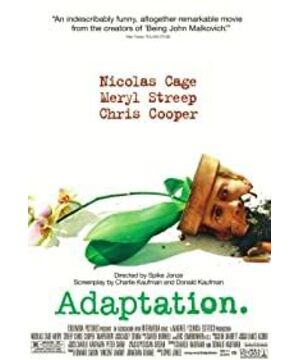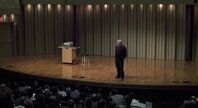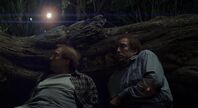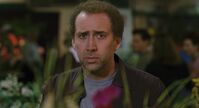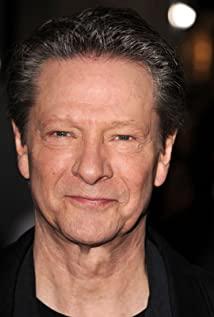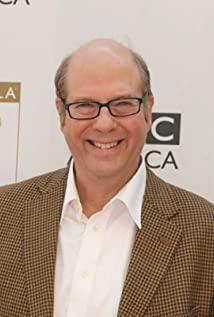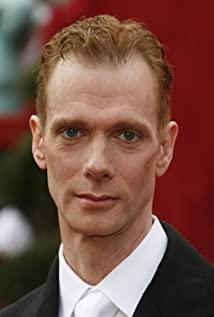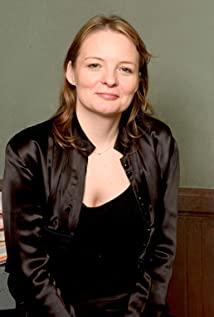Spike Jones_Adapted screenplay_2002
7.9
There is no doubt that the best stories in the world are paradoxes.
For authors, vanity is extremely important, and feeling loved is extremely important, which will motivate them to complete and deliver on time. But when you tentatively care and ask, "How are you doing?", they don't hesitate to answer, "It's a mess," because their lives are really messed up. Voices kept ringing in their minds, mocking the advice of others and regretting their actions.
If the author wants to write a flower, it must show the arc of the petals, and the arc must have a head and a tail. To explore its beginnings, we still have to go back to what Carl Jung believed in the "primitive model," a building material of the collective unconscious, the psychological basis on which universal values prevail. The authors re-materialize this universal life experience as the beginning of the arc. Charles Robert Darwin is famous for his proposal for evolution by natural selection, which itself has two ways of understanding it.
One, there have been countless known human species in history, some like turtles, some monkeys, some onions, some teachers, some gymnasts or Midwest beauty queens, some like high school skins Some are like New York intellectuals who play word puzzles in bed on Sundays, some seem to dance in their eyes, and some are full of all the sorrows of the world. But after screening, everyone's faces became completely the same, thinking about good ideas for expressing eroticism, good ideas for murder, firearms, explosives, speeding cars, knowing the profound truth of life, growing up or accepting each other, breaking through all difficulties and retiring , the real life is like what is written in the book.
Second, when the chaos began, all the organisms on the earth originated from the same original form, a group of single-celled organisms, gathered together like mirrors all around. But over time, this homomorphism becomes specific to different people, making them very different. Everyone is trapped at a specific point in time and space, confined in their respective bodies, unable to escape. There are all kinds of strange new ideas coming out in everyone's mind, but unfortunately we can only go with the end, there is nothing more lonely. Before Fellini created the first pseudo-documentary, there were no new genres and themes, and the so-called distinctiveness of screenwriters still had to be carried out within the framework of norms.
Whether or not what happened is really relevant to me, it seems like it should be. I know that people are killed every day in the world, that every day someone goes to great lengths to get involved in or ruin another person's life, but he's the one who thinks nothing happens in life. But "The Orchid Thief" ended like that, without any dramatic elements (probably made up), and "How to Adapt the Orchid Thief" couldn't end like this.
Think about shrinking the world a bit, too many directions to go and too many people to show up, so change the story to be more manageable. If you want to really get to know the person, the interview is not enough, you need to stalk, peep, hack into her porn site account. Change must also appear, you have to kill the previous self, but change cannot appear deliberately, it has to slowly trickle out. The philosophy mentioned here by Robert McKee is not a prejudice, not a formula, not a formula, not a cliché, not Jesus and Einstein, but a method of narrowing the road, and that red book of screenwriters is the art of decorating a house , has something to do with everyone's clichéd dream of living and working in peace and contentment.
Anything has the potential to disrupt their train of thought, and even when no one else exists, they will also be in chaos, and then claim to be the saddest person in the world. After three or five days or decades they recovered as before, as if the hibernation was over. For these stories, again, they are easily moved by a fantasy, as elusive as all others are to all others.
In the end we finally believe that Susan Orlean has no interest in flowers, and the whole book is a big lie. But cheating, drugs, speeding cars, and firearms reversed the rhythm of the film. Pursuit, murder, confession, and revenge appeared, and the ensuing contradictions, thirst, and arc also reversed the lead. As for what the relationship between Charlie Kaufman and Donno Kaufman represents, and what the relationship between the two brothers and the two archetypal characters represents, meta-movie audiences may have long since seen it strange, but my deepest resonance is: the real author is like this The type of people who know the right answer but want to get it wrong, they have to fight against a bunch of things that already exist and this industry that believes "it's always been right". For me personally, it's as thin as the kite string in "Eight and a Half", and the land we mistakenly think exists is actually always floating on the water.
View more about Adaptation. reviews


